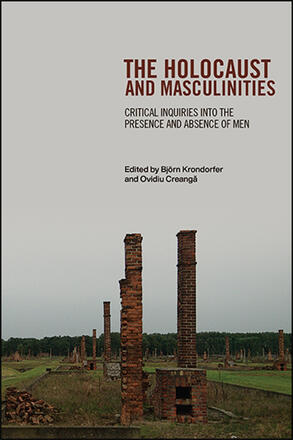
The Holocaust and Masculinities
Critical Inquiries into the Presence and Absence of Men
Alternative formats available from:
Critically assesses the experiences of men in the Holocaust.
Description
In recent decades, scholarship has turned to the role of gender in the Holocaust, but rarely has it critically investigated the experiences of men as gendered beings. Beyond the clear observation that most perpetrators of murder were male, men were also victims, survivors, bystanders, beneficiaries, accomplices, and enablers; they negotiated roles as fathers, spouses, community leaders, prisoners, soldiers, professionals, authority figures, resistors, chroniclers, or ideologues. This volume examines men's experiences during the Holocaust. Chapters first focus on the years of genocide: Jewish victims of National Socialism, Nazi soldiers, Catholic priests enlisted in the Wehrmacht, Jewish doctors in the ghettos, men from the Sonderkommando in Auschwitz, and Muselmänner in the camps. The book then moves to the postwar context: German Protestant theologians, Jewish refugees, non-Jewish Austrian men, and Jewish masculinities in the United States. The contributors articulate the male experience in the Holocaust as something obvious (the everywhere of masculinities) and yet invisible (the nowhere of masculinities), lending a new perspective on one of modernity's most infamous chapters.
Björn Krondorfer is Director of the Martin-Springer Institute and Endowed Professor of Religious Studies at Northern Arizona University. He is the author of several books, including Reconciliation in Global Context: Why It Is Needed and How It Works, also published by SUNY Press. Ovidiu Creangă is Historian for the Claims Conference in New York and Adjunct Professor of Hebrew Bible at Wesley Theological Seminary in Washington, DC. He is the editor of Men and Masculinity in the Hebrew Bible and Beyond.
Reviews
"The proposition that binds these 13 contributions into a single, well-conceived volume is that a gendered approach to the Holocaust enriches understanding of this complex phenomenon … Highly recommended." — CHOICE
"This is a carefully constructed and field-defining work that will influence a generation of new scholars and be cited and discussed for years to come. It builds on the existing scholarship on women and the Holocaust in a way that enriches our understanding of the intersectionality of masculinity and femininity." — Zoë Waxman, author of Women in the Holocaust: A Feminist History
"The contributors articulate some of the challenges for studying masculinity with regards to victims of the Holocaust, making a convincing case for the benefits to be gained from doing so." — Clayton J. Whisnant, author of Queer Identities and Politics in Germany: A History, 1880–1945